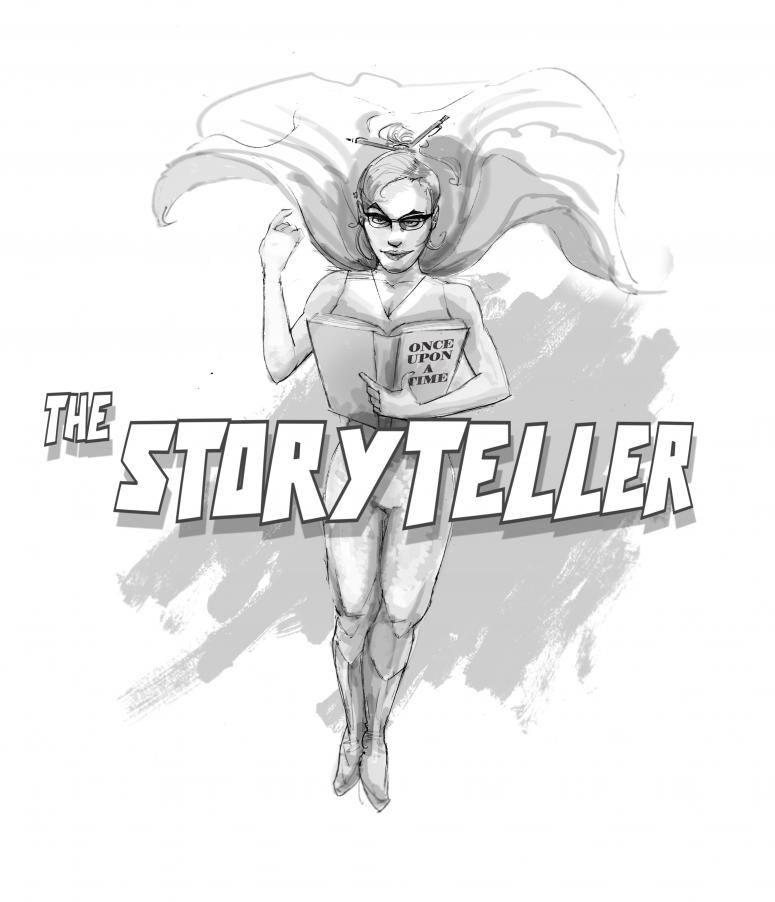
“If your research was a superhero, what would its special power be?”
This was one of five questions that we asked researchers when they visited RTI International’s booth at the 2017 ARM. Our goal was to prompt a discussion about what makes research “stick” in the minds of policymakers as well as clients, colleagues, and even family members.
We received many creative, fun answers! Our superheroes include:
- The Fortune Teller, who has the ability to predict the future and identify upcoming trends and challenges;
- The Flash, who can do research in the blink of an eye;
- The Brainiac, whose research omnipotently keeps up with new methods and findings from the field;
- Elastica, who is flexible enough to shape time and resources to meet impossibly tight deadlines; and
- The Archer, whose research results have amazing accuracy.
The Missing Superhero
For all the wonderful special powers we heard about, we found one superhero and special power to be conspicuously absent: The Storyteller.
The Storyteller can distill complex data and results into simple examples that colleagues, policymakers, and even laypersons can readily understand. The Storyteller has the quintessential skill for making her ideas “stick” to the people she encounters. The Storyteller is Aaron Carroll and Austin Frakt talking comparative health care systems by way of a bracket tournament. It’s Atul Gawande likening “big medicine” to The Cheesecake Factory. It’s every story we read in Health Affairs’ Narrative Matters section.
We noticed that The Storyteller was missing when we looked at the answers that ARM attendees gave to our other four questions about making research “stick.” The consistent theme we heard was that storytelling was what makes research “stick”:
- “I wrote it in lay terms about 10 times”
- “I focused on impact (not on methods, approaches or background information)”
- “I showed a powerful case example”
- “Someone had a real world problem in their life and I related that to my research”
And when we asked who it’s hardest to get research to “stick” to, we heard primarily about policymakers, clinical decision makers and friends and family.
We heard about how “policymakers must make decisions faster than evidence is available,” and about “decision makers who are pulled in different directions, but [we] have to work together to ‘pull’ them our way to improve health care delivery,” because “decision makers are too busy to use research results.” We also heard that it’s hard to make research “stick” to friends and family – people without research training and who we’d like to be able to discuss our work with.
Becoming a Storytelling Superhero
With The Storyteller missing from the superheroes list and such an emphasis on storytelling skills in response to our other questions, we wondered what it would take for AcademyHealth members to become more effective storytellers.
The good news is that unlike superheroes, we don’t have to be born with the storytelling superpower. It’s something we’ve worked on here at RTI over the last year, with workshops to support our efforts. In one exercise, we had to draft one-minute descriptions of our research for three different audiences: a decision maker; an interested layperson; and a first grader. As you can probably guess, the first grade audience proved challenging – and the most compelling explanation included a reference to Batman!
Some of the best advice we heard from our expert storytellers over the last year included:
- Put the bottom line up front – focus first on what we want the audience to care about, and later on details that matter more to researchers (data and methods).
- Move from numbers to narrative – identify your story, help the audience understand why you want them to listen, and humanize your data by using quotations or introducing a main character affected by the issues you’re addressing.
- Show, don’t tell – use infographics, charts, and photographs.
- Practice, practice, practice!
The next time you’re getting ready to talk to a policymaker or a reporter – or even to your family over dinner – make your next move toward becoming a Storytelling Superhero. Focus on characters, plot twists, and suspense, and draw inspiration from the superhero powers you already possess!
The opinions expressed in this blog post are the author's own and do not necessarily reflect the view of AcademyHealth.
Organizational Affiliates are a critical link in AcademyHealth’s ability to effectively advocate for the field, and support the future field of health services researchers. Organizational Affiliates gain visibility among AcademyHealth membership, enjoy unique networking opportunities, and benefit from event discounts. Click here to learn more.